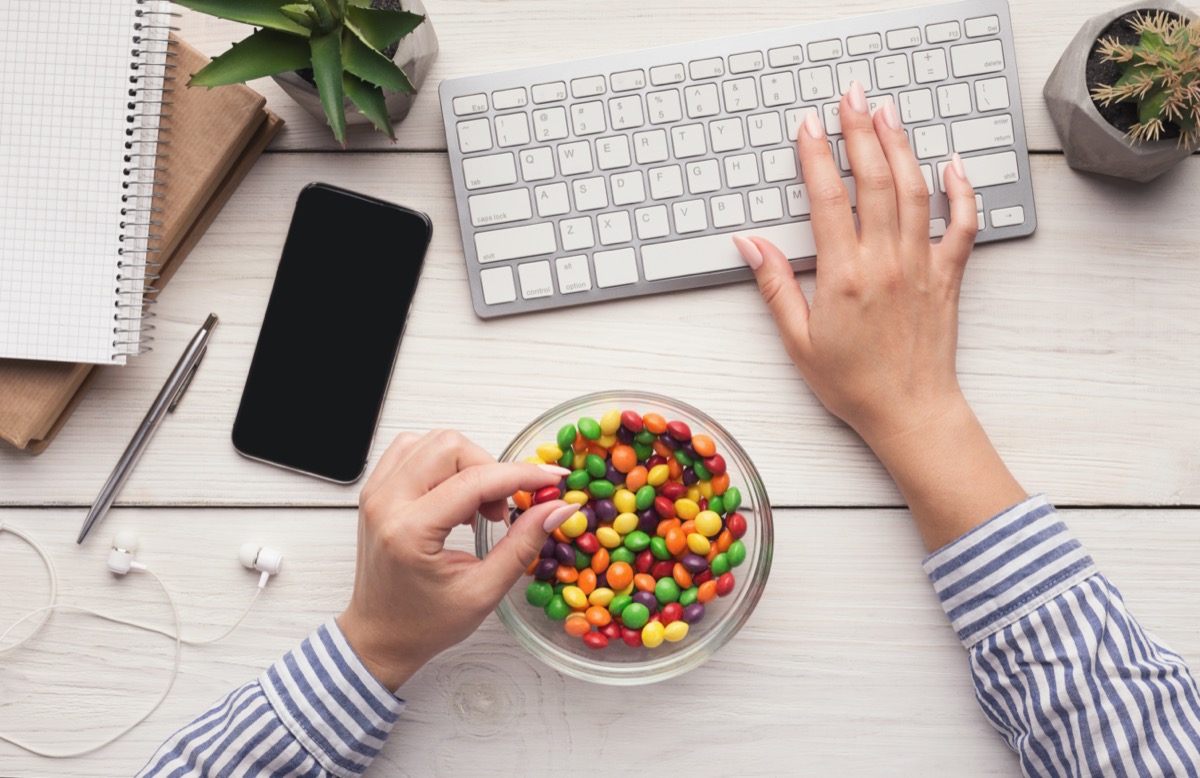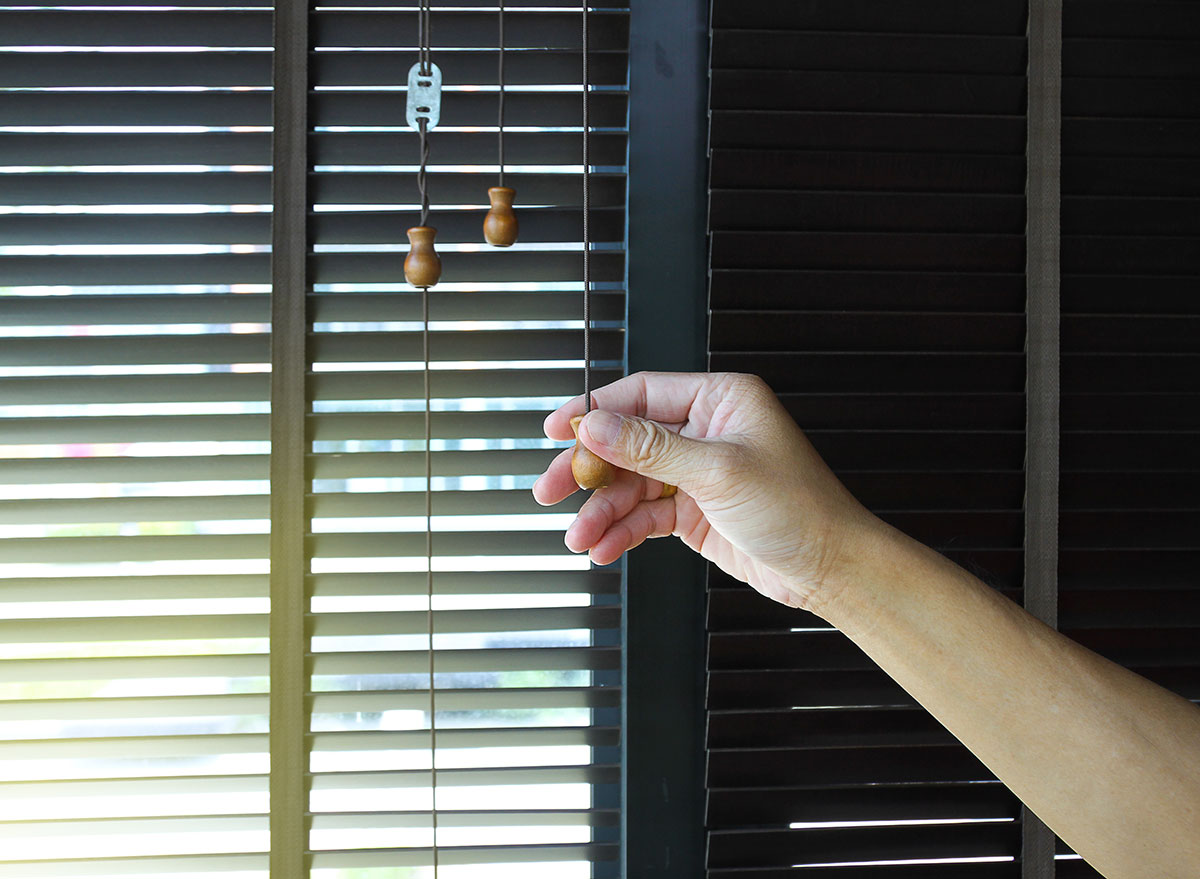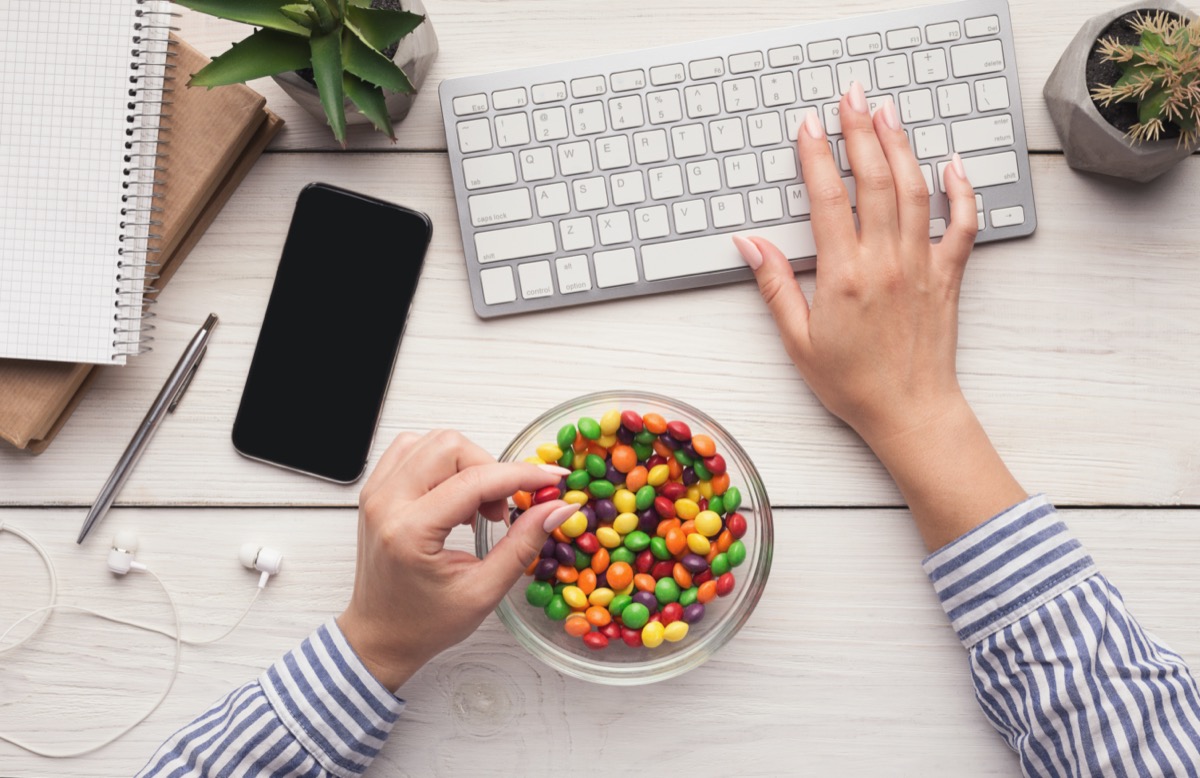7 Unhealthiest Work-From-Home Habits

Remember when we all dreamed about working from home? Now, that’s a reality for 42 percent of the U.S. labor force. And while there are some perks to not having to step inside an office (like not having to wear a tie or heels), there are some downsides—and some of them can take a toll on your health.
When the line between your work and home life is blurred, we may end up working more than we ever have before. It’s no surprise that that will have negative consequences. According to a study in the journal Preventive Medicine, those of us who put in more than 40 hours a week are more likely to gain weight than those who work less. Working longer hours isn’t the only habit that may have changed when you switched to WFH life. There are a few more lifestyle changes that you have turned into habits while working from home that can have serious repercussions on your health if you don’t identify them immediately. We put together a list of the 7 unhealthiest habits you should address as soon as possible to protect your health. Read on, and for more on how to lose weight, you won’t want to miss The Best Ways to Lose Belly Fat for Good, Say Doctors.
You work late

When you’re working from home, it’s hard to set boundaries. Especially when the rest of your family is home, as well. If possible, set a cut off time when you’ll log off from work — just like you would if you were in the office. This way, you can reserve your evenings for time with the family—and eating dinner at a reasonable hour. When you work later, you also eat dinner later, both of which lead to unwanted pounds. A study in the journal Nutrients found that those whose last meal was closest to bedtime took in more calories throughout the day. If it fits in your schedule, consider shifting your hours a bit to log on earlier in the day. You’ll get more done with less impact on your belly, especially if you practice a morning fast like the 16-8 fast, where you eat only during an 8-hour window, typically starting around 1 p.m. For more, read about 7 Science-Backed Benefits of Intermittent Fasting.
You no longer take public transportation

You may have overlooked the impact your morning commute had on your health. People who take public transportation to get to work weigh, on average, 5.5 pounds less than those who take a car, according to a study in the British Medical Journal. The implication being that those who take a bus or train were slimmer than those who drove because they still had to walk on one or both ends of their commute. And when you’re working from home, the only walking you’re doing is from out of your bedroom into another room (if you’re even lucky enough to have a separate space).
You stay glued to your seat

We spend only about seven hours out of every 24 standing and moving. And our sedentary jobs now cause us to burn 100 fewer calories a day than we did 50 years ago. That alone can translate into an extra 10 pounds of weight gain a year. Instead, do this! Get up and walk for two minutes every hour. A study in the Clinical Journal of the American Society of Nephrology suggests that practice can offset the effects of too much sitting. By the way, check out What Happens To Your Body When You Sit All Day.
You draw the blinds

Does your home office have a window? Pull up the shades and move your desk near it. Employees with windows near their desks receive 173% more white-light exposure during work hours and an additional 46 minutes of sleep per night than employees who don’t have exposure to natural light. Instead, do this! If you don’t work near a window, try to get as much morning sunlight before work as you can. Research has shown that sun exposure between 8 in the morning and noon is linked to higher fat burning and lower BMIs, regardless of calorie intake, exercise, or even age.
You snack all day

It’s called the see food diet: the food you see is the food you eat. Whether you’re posted up right next to your pantry and stare at the food in your kitchen all day, or if you have to eat at your “work desk,” there are many more food triggers at home than there are in an office. While snacking is a healthy habit, it is possible to overdo it. Research shows that if you start adding snacks to your diet, or simply eat more frequently throughout the day, without decreasing your calories elsewhere, those extra meals will contribute excess calories and can cause weight gain. To keep your hunger levels to a minimum, read up on these 19 Healthiest Foods to Stop Your Cravings, According to RDs.
Drinking coffee all day long

When your coffee pot is within arms reach rather than down a few floors and around the block, it’s almost inevitable that your caffeine intake will increase when you’re at home. But you should be aware that there is such a thing as drinking too much coffee. And it’s not good for your health. Research shows that drinking between 500 to 600 milligrams of caffeine (four to seven cups of coffee) and more can pose a health risk. Drinking over four cups of coffee every day may lead to a condition known as “caffeinism,” which can cause restlessness, anxiety, irritability, insomnia, headaches, and cardiovascular symptoms. When the 3 p.m. slump hits, go for a walk or do some bodyweight exercises to get your energy back up.
For more, check out 7 Warning Signs You’re Drinking Too Much Coffee.
You give into work stress

A study in the American Journal of Epidemiology found that people with high levels of job stress are 26% more likely to be inactive during their downtime than those with low-stress jobs. If you’re feeling overwhelmed at work, consider talking to your manager to see if you can come up with a more manageable workload. If you don’t have much flexibility with your output, then it may be worth looking for other ways to destress, like meditation, yoga, exercise, reading, or even taking a “mini-vacation,” where you treat one weekend day like a vacation! Completely unplug! Or try 10 Ways to Relax So Healthy Eating Works.








